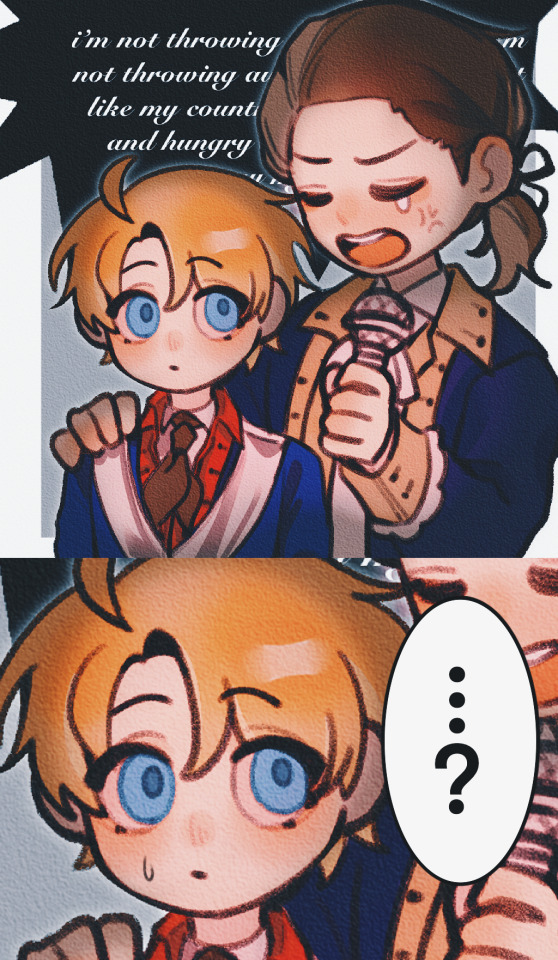Text
On my knees in the Walmart after reading the headcanon that England cared/thought so little about America that he didn't even show up to fight in the American Revolution
103 notes
·
View notes
Text
as someone who hc him as 13 i shall not accept this slander

silly doodle cuz people on twitter were talking about if america was physically younger for the rev war 😭😭😭
151 notes
·
View notes
Text

The “General Washington did not allow me to wield a rifle and go punch Lord Father in the face, instead he gave me a snare drum and a non-combatant uniform” look. Also the too big uniform because he walked into the marquee tent once after gaining several inches in a couple nights (the growing boy,,,), so in case he had the sheer audacity to grow more…
161 notes
·
View notes
Text

baby’s first war
219 notes
·
View notes
Note
Do you have any headcanons for America and his early presidents? How he navigated figuring out how this new government would work with the president?
In the craziness of life, I've barely opened my laptop, let alone my inbox for months, so this ask is.... very old. Apologies, anon, that it's taken so long.
I've said many times before I have several different "versions" of the HWS universe, which vary widely in terms of how "old" nations are, their exact relationships to each other, etc. However, my default version is the one that you can read in Amity and (Un)civil, where Alfred is essentially a young teenager (think 13-14) during the American Revolution.
With that being said, I honestly think the early years Alfred struggled to be taken seriously. Older nations like Arthur and Francis have centuries-old traditions to "initiate" or acclimate their human leaders into the entire concept of their existence. Some groups, like royal families, have not only known about them, but known them personally since they could walk. Alfred lacks any of these established pathways, and to make things worse, he's a kid. So while a lot of his new leaders are willing to accept who and what he is, many are not, and there is no recourse for Alfred to do anything about it. Early on, Alfred struggles to make himself heard by the president or Congress, and has to talk louder and repeat himself many more times than any other nation he knows. This affects the way he relates to his government for many, many years, and even after people start to listen to Alfred, he still feels as though he struggles to make himself seen and heard as he wants.
As far as individual leaders, I think Washington was actually quite willing to accept Alfred's existence, and was fond of him personally, but as a practical reality, Alfred was often in the way. He was too young to fight as a regular soldier (though he was allowed to participate in some guerilla skirmishes where he wouldn't be widely seen), was energetic and rarely stood still, didn't yet have a good grasp of diplomacy or spywork, and see-sawed wildly between pure panic of Arthur coming to cut out his heart, and blinding idealism of his god-ordained victory.
In short, Alfred was a very likeable but utterly exhausting mascot to have underfoot when you're trying to fight a war.
John Adams didn't dislike Alfred, but he didn't engage with him all that much. He found Alfred a little too "common" in his tastes and opinions, and never consulted Alfred on any decisions. However, Alfred ended up spending far more time with Adams than Washington, mainly because Abigail Adams took one look at Alfred and decided to adopt him in all but name, so he often stayed with the President's family for extended periods, though he very rarely spent much time with John himself.
Jefferson is someone Alfred knew for many years before he became president, so he was actually quite thrilled when he came into office. The way I see his relationship with Jefferson is fairly one-sided, in a way. Alfred regarded Jefferson as a very close friend from a very early date, because, frankly, Jefferson was one of the only founding fathers who stopped and listened to him for any appreciable length of time. Jefferson also recognized that despite his "age" Alfred was an incredibly smart person, rising polyglot, and had lived for a very long time. Alfred interpreted his interest as closeness, and confided in Jefferson things he would not confide with others, treating him as a friend and ally.
To be frank, Alfred had never had many friends, so he was not very good at identifying what made a good friend a good friend. It was not until the first decade or two of the 19th century, as Alfred himself was coming of age and passing as a young adult rather than a teenager, when he began to make more actual friends within his government, that Alfred realized his relationship with Jefferson was a little... odd. They drifted apart and moved on with life. After Jefferson's death, when his daughters were dividing up his estate, Alfred received a visit from Martha Randolph (Jefferson's eldest). She was on her way to the White House, she explained, to deliver some items her father had willed to the Office of the President. One of them, she claimed, Alfred ought to see before anyone else.
It was a handwritten book, partially filled with years'—decades'—worth of dated entries, which read like a natural history treatise, all of which contained Jefferson's observations, speculations, and "findings" on a singular subject of scientific study: Alfred. As he read, the progressive realization that much of Jefferson's interactions with Alfred—particularly during his years as president—were at least in part motivated by a need to study Alfred as a thing, an anomaly of science, a phenomenon to be understood, rather than... well, the close friend that Alfred thought he was to Jefferson... it was a shock.
The book made its way to the White House archives, classified and set aside for future presidents to consult and, if they want to, add to. Alfred hasn't read it since the day Martha showed it to him. He still considers Jefferson a friend, but he still feels a twinge of anger when he thinks of it.
Alfred hadn't fully found his stride in dealing with presidents until James Madison's presidency. James was the first president with whome Alfred was, undoubtedly, actually a close friend. After Alfred was able to make it through his awkward, thoughtful, and quiet shell, Madison shared many of his dreams for Alfred's future with Alfred himself, and relied on Alfred's thoughts and feedback, which was a new experience for him. I think Madison did a lot to encourage Alfred's confidence—ironic, with his own struggles for the same—and basically tell him he needs to be assertive with his leaders, because know one knows his people like he himself does. His fondness for James was perhaps only outdone by his fondness for James' wife Dolly, whose strength and extroversion was the perfect compliment to her shy, intellectual husband.
Everything after Madison was it's own monster and there were a lot of ups and downs for Alfred's relation to the white house. But in terms of the early days, I think Madison's presidency was kind of the end of his "tutorial" years, if that makes sense.
122 notes
·
View notes
Text
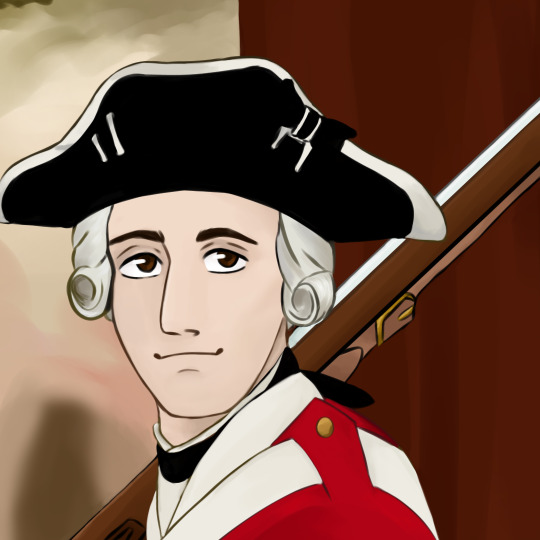
Baker because I'm re watching Turn and yeah
84 notes
·
View notes
Text

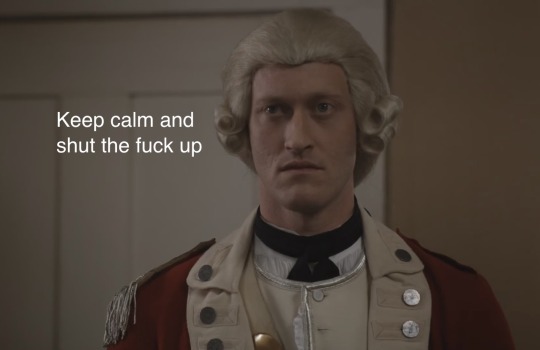


hi turn besties new passive aggressive simcoe just dropped
82 notes
·
View notes
Text
SOEMONE FINALLY DID IT


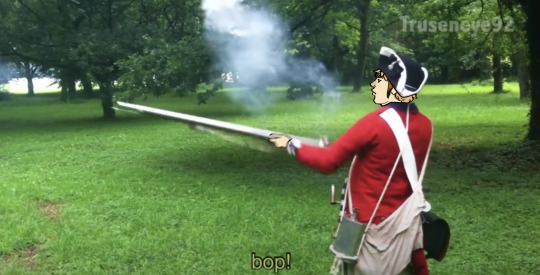

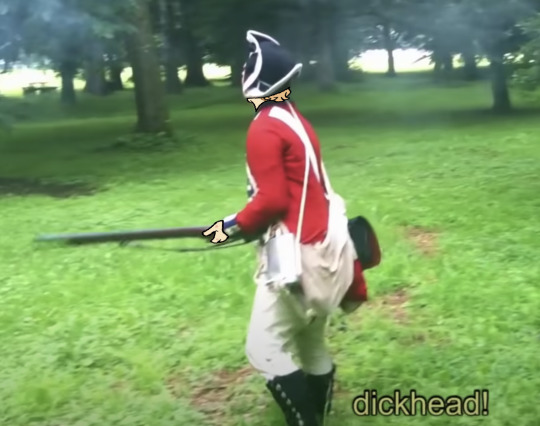

this video lives in my head rent-free at all times. 18th century roadman arthur having a day in the field...
and elsewhere in the field...
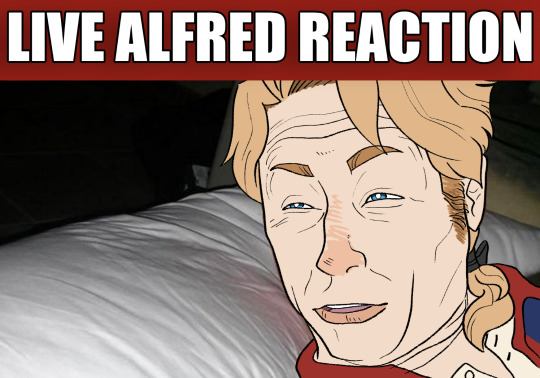
#hetalia#historical hetalia#aph america#hws america#hws england#aph england#arthur kirkland#revolutionary war
528 notes
·
View notes
Photo

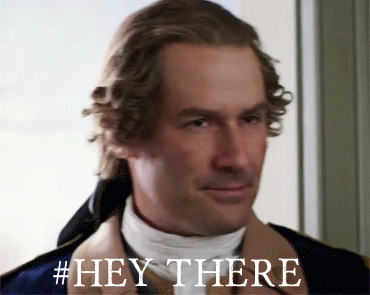


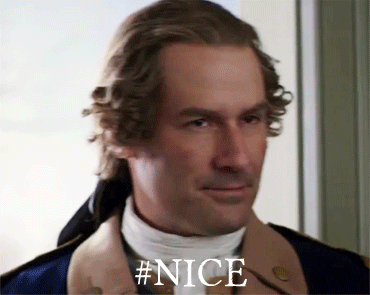
GUYS I HAVE A GEORGE WASHINGTON PROBLEM LOOK I MADE GIFS
2K notes
·
View notes
Text
"Family should have always been my priority, but I lost focus and had a consensual workplace relationship"
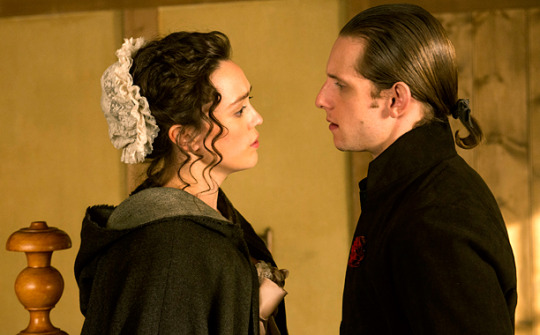
31 notes
·
View notes
Photo
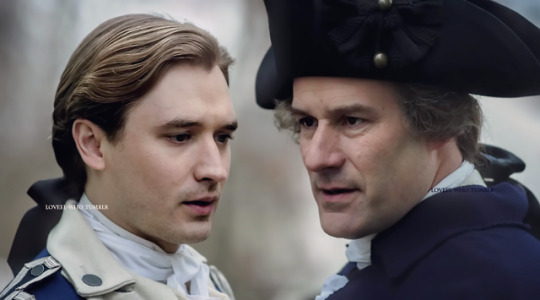
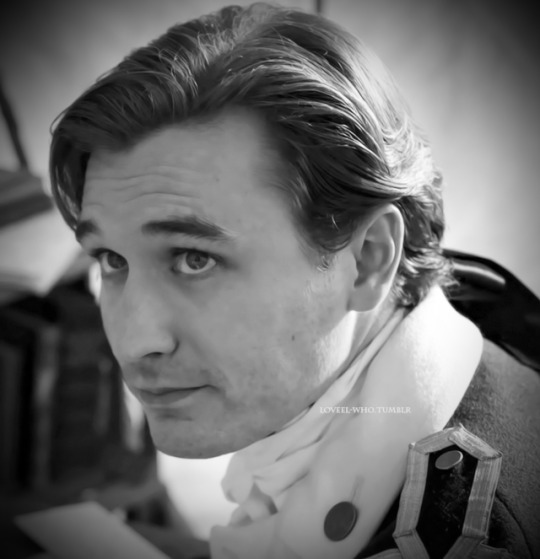

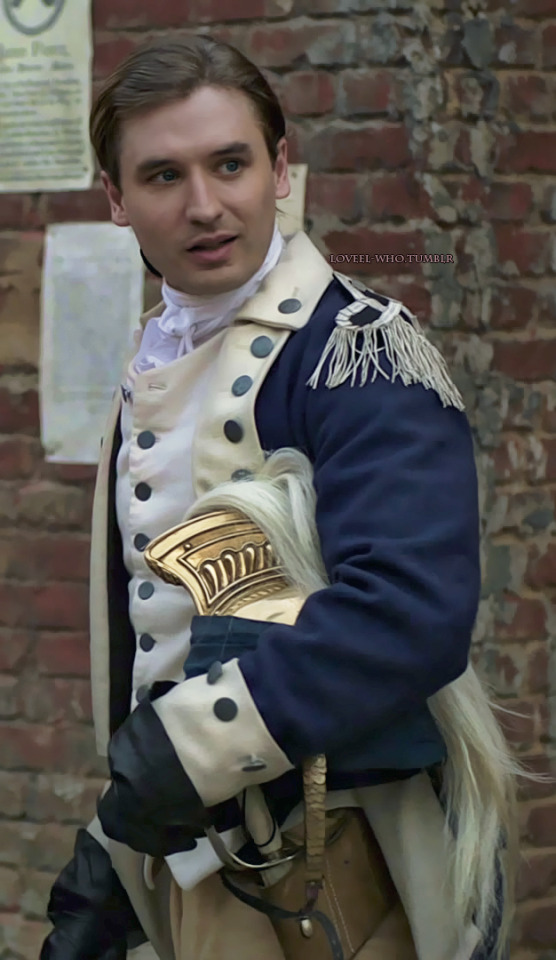


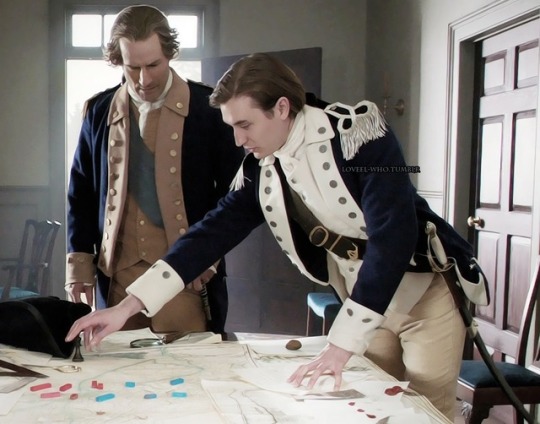
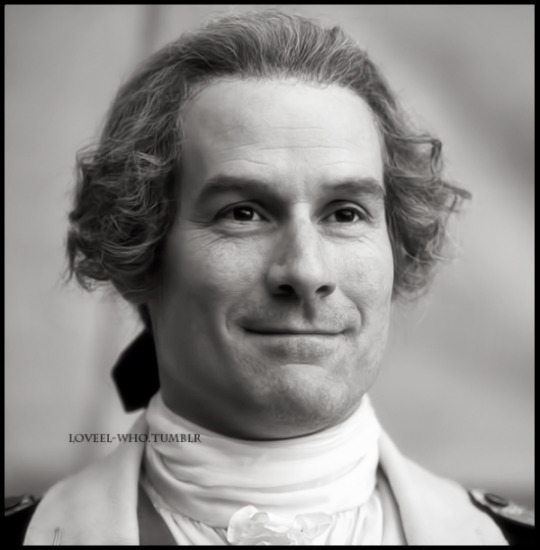
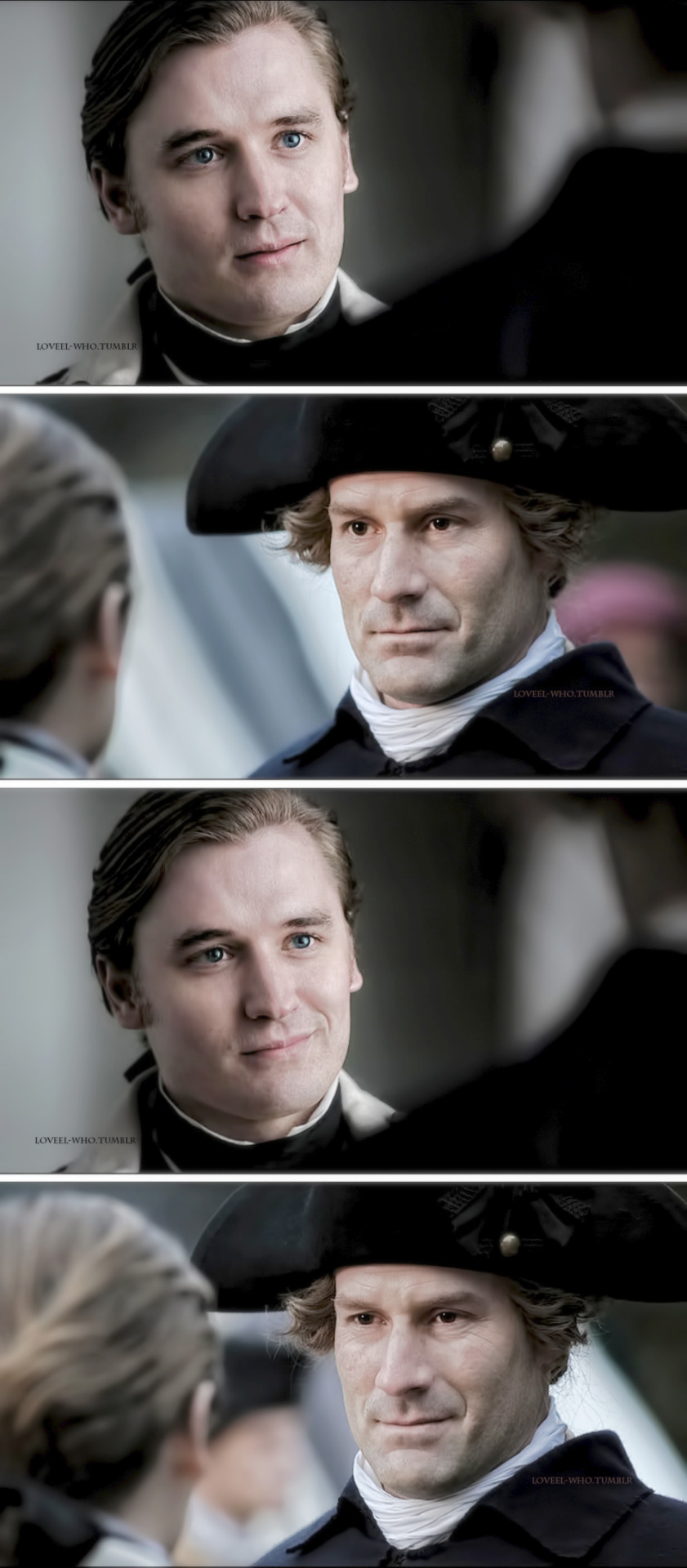

30 notes
·
View notes
Text
NOOOOOO HE JUST HAD TO DO IT TO EM😭😭😭

thank you to @grumpycorgie for the wonderful image i used for this
2K notes
·
View notes
Text

thank you to @grumpycorgie for the wonderful image i used for this
#hetalia#aph america#aph england#hws america#hws england#revolutionary war#alfred f jones#arthur kirkland#funny#meme#historical hetalia
2K notes
·
View notes
Text
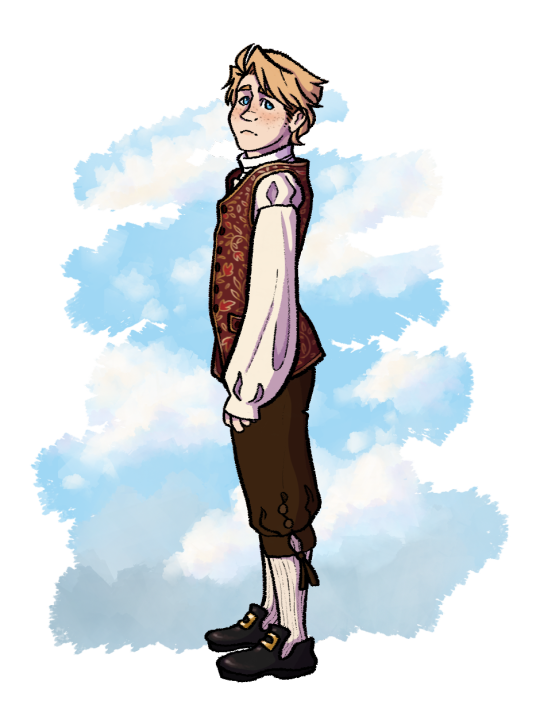
A young Alfred Kirkland, pre-Seven Years' War, likely sometime around the early- to mid-1700s. Arthur insisted on the red waistcoat so that they might match on the occasion that Lord Kirkland came to the colonies. His physical age appears to be around 10 or 11. Alfred enjoys the literature that Arthur has sent him in the past few months but sorely misses his busy older brother. There's only so much a young boy can get up to when all that Arthur seems to let him make is ship after seafaring ship.
Little could Alfred imagine what the next few decades had in store for him then!
283 notes
·
View notes
Text
don’t do him like this💀

thank you to @grumpycorgie for the wonderful image i used for this
2K notes
·
View notes
Text

The “General Washington did not allow me to wield a rifle and go punch Lord Father in the face, instead he gave me a snare drum and a non-combatant uniform” look. Also the too big uniform because he walked into the marquee tent once after gaining several inches in a couple nights (the growing boy,,,), so in case he had the sheer audacity to grow more…
161 notes
·
View notes
